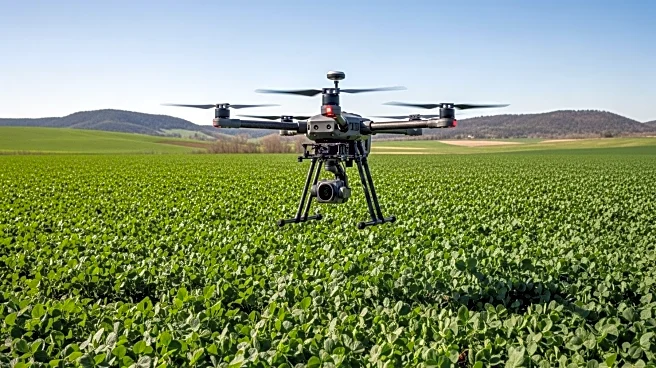What's Happening?
A new report by the Association of Equipment Manufacturers highlights the benefits of precision agriculture in reducing resource use across the United States. The study reveals that precision agriculture practices have led to significant reductions in fertilizer, herbicide, and water use. Fertilizer use has dropped by 8%, avoiding the application of 4 billion pounds, with an additional 7 billion pounds still possible. Herbicide use has declined by 9%, preventing 54 million pounds from entering the environment. Farmers also saved 147 million gallons of fuel, equivalent to removing nearly 283,000 cars from the road. Water efficiency has improved, with savings equal to filling 824,000 Olympic-sized swimming pools.
Why It's Important?
The adoption of precision agriculture is crucial for enhancing environmental sustainability and resource conservation in farming. By reducing the use of fertilizers, herbicides, and water, precision agriculture helps minimize the environmental impact of farming practices. These reductions contribute to a more sustainable food supply chain and support efforts to address climate change. The economic benefits for farmers include cost savings and improved efficiency, which are essential for maintaining competitiveness in the agricultural industry.
What's Next?
As precision agriculture technology continues to advance, further improvements in resource efficiency are expected. Stakeholders, including farmers, technology developers, and policymakers, will focus on expanding the use of precision agriculture to optimize farming practices and improve sustainability. The integration of AI and data analytics in precision agriculture may offer even more precise and cost-effective solutions for resource management.
Beyond the Headlines
The ethical implications of precision agriculture include concerns about data privacy and the potential displacement of traditional farming jobs. As technology becomes more prevalent, there will be a need for regulations to ensure responsible use and equitable access to technology. Additionally, the cultural shift towards technology-driven farming may require education and training for farmers to adapt to new methods.










